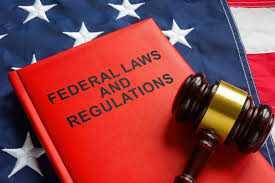LAW AND GOVERNMENT OF A NATION
Law and government are integral pillars that shape society, providing structure, stability, and order in any nation. At their core, they determine how individuals and organizations interact, uphold rights, enforce justice, and maintain peace. Understanding how these systems work illuminates their impact on daily life, the protection of freedoms, and the balance of power. This article will explore the essential relationship between law and government, how governments create and enforce laws, and the impact of these structures on citizens' lives.
Law: A Foundation of Order and Justice
Laws are rules and regulations established by governments or societies to maintain order and protect rights. They provide a framework that ensures individuals can exercise their freedoms without infringing on the rights of others. Laws vary in form—criminal laws address offenses like theft and assault, while civil laws handle issues like property disputes and contracts. Constitutional law, in particular, serves as the supreme law in many countries, providing the foundation for how a government operates and ensuring citizens' fundamental rights.
The rule of law is a concept that means no one is above the law, including government officials. This principle is essential for democratic societies, as it holds everyone accountable and prevents abuses of power. By following established laws, societies can ensure justice, equality, and predictability. Laws are also dynamic and adapt to societal changes, evolving through legislative processes, judicial rulings, and amendments to address new challenges like technology and globalization.
The Role of Government in Society
Governments are organized bodies that have the authority to create, enforce, and interpret laws. They exist in various forms—democracies, monarchies, autocracies, and others—with each having different structures and approaches to governance. A government typically comprises three branches: the executive, which enforces laws; the legislative, which creates laws; and the judiciary, which interprets laws. This separation of powers is crucial for preventing any single entity from gaining unchecked power.
In democratic systems, the people elect representatives to make decisions on their behalf, fostering transparency and accountability. This form of government encourages citizen participation and allows individuals to have a voice in the decisions that impact their lives. In contrast, authoritarian governments concentrate power within a small group or a single ruler, often limiting citizens’ rights and freedoms.
Governments serve multiple roles in society, such as protecting national security, providing social services like healthcare and education, maintaining infrastructure, and regulating commerce. Through policies and programs, governments aim to improve citizens’ quality of life, reduce inequalities, and stimulate economic growth. The effectiveness of a government often depends on its commitment to ethical practices, inclusiveness, and responsiveness to the needs of its citizens.
Creating and Enforcing Laws
Law creation typically begins with the legislative branch, where elected representatives draft, debate, and vote on proposed laws. In democratic systems, these laws are created in a transparent process that involves public input, committee reviews, and rigorous debate. Once approved, the law is sent to the executive branch, where it is signed into effect. The judiciary then interprets and applies the law, ensuring it aligns with constitutional principles.
Enforcement is a key component of upholding the law. The executive branch uses various agencies, like the police and regulatory bodies, to enforce legal standards. Courts and judges play an essential role in holding individuals and organizations accountable, ensuring fair trials, and protecting individuals’ rights. Law enforcement and judicial systems must operate fairly, avoiding discrimination and ensuring equal treatment under the law to maintain public trust.
Impact of Law and Government on Citizens
The laws created by governments directly affect nearly every aspect of citizens’ lives. They regulate behavior, protect freedoms, and promote a secure environment. For instance, labor laws set workplace standards, protecting workers' rights and safety. Environmental laws reduce pollution and ensure a sustainable future. Public health laws address issues like food safety, preventing illness, and safeguarding health.
Citizens are not only subject to the law but also have rights protected by it. In democratic societies, constitutions guarantee freedoms like speech, assembly, and religion. These rights provide individuals with opportunities to express themselves, participate in governance, and live freely. Legal systems also protect individuals from discrimination and abuse, ensuring everyone receives fair treatment regardless of background or status.
Conclusion
Law and government are essential structures that provide order, protect rights, and create opportunities for progress. Together, they foster a society where people can coexist peacefully, pursue goals, and contribute to national development. The balance between individual freedoms and the responsibilities of government shapes a fair society where justice, stability, and equality prevail.



No comments yet
Be the first to share your thoughts!